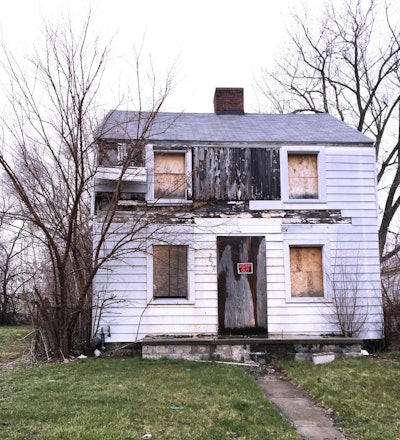Brown University has decided to cancel its plan to host an exhibit that included the home where civil rights icon Rosa Parks lived after she fled Alabama, where she had refused to give up her seat on a Montgomery bus.
 The Rosa Parks House
The Rosa Parks HouseThe decision to halt the exhibit comes amid a contentious fight between the Rosa and Raymond Parks Institute for Development — an organization that Parks founded — and Ryan Mendoza, owner of the house.
“The university recently learned from the Rosa and Raymond Parks Institute for Self Development that the Detroit house that was to be the focal point of the programming and an exhibition celebrating Rosa Parks and civil rights is the source of a current dispute,” said Brown University officials in a statement. “Brown University does not speak on behalf of the family of Rosa Parks, the institute or the artist who owns the house. It is out of deep respect for the legacy of Rosa Parks and what it represents for America that the University feels it cannot responsibly move forward with the exhibit of the house, previously set to open April 3.”
In an interview with Diverse last month, Brown officials were excited about hosting the exhibit, which is currently on public display in Mendoza’s backyard in Berlin, Germany. It has been there since 2016.
The exhibit was set to reside in the WaterFire Arts Center, owned by WaterFire Providence, which is a few minutes from Brown’s campus. The center, a former industrial building, was slated to be open for free for the public to visit from Thursday to Sunday each week until the exhibition period ended in June.
Parks’ house was supposed be the center of the exhibition project titled “The Civil Rights Movement: Unfinished Business.”
 Dr. Anthony Bogues
Dr. Anthony BoguesSeveral programs were scheduled to take place in front of the home, such as a conference and workshop in May called “Race, Memorialization and Memory,” theater performances, gospel singing performances and panel discussions about the Civil Rights Movement and questions about race relations today.
“I think that one of the reasons for us to do [this] is given the climate of race in America today,” Dr. Anthony Bogues, director of the Center for the Study of Slavery & Justice (CSSJ) and a professor of Africana Studies at Brown, told Diverse. “We thought that the homecoming of the house and the expedition would be an opportunity for us to have some hard conversations around race, the future of race and an end to Black racism in this country.”
Apparently, there is also a dispute over whether Parks actually lived in the house.
Last month, The Brown Daily Herald noted that Parks’ brother, Sylvester McCauley, owned the three-bedroom house, and Parks — who became a symbolic face of the movement — only stayed in it intermittently after fleeing from Alabama to Detroit in 1957. The house was on Detroit’s demolition list until Rhea McCauley bought it for $500 in 2008 and then passed it along to Mendoza to restore in 2016. Mendoza moved it in pieces to his home in Berlin, where he rebuilt it.


















